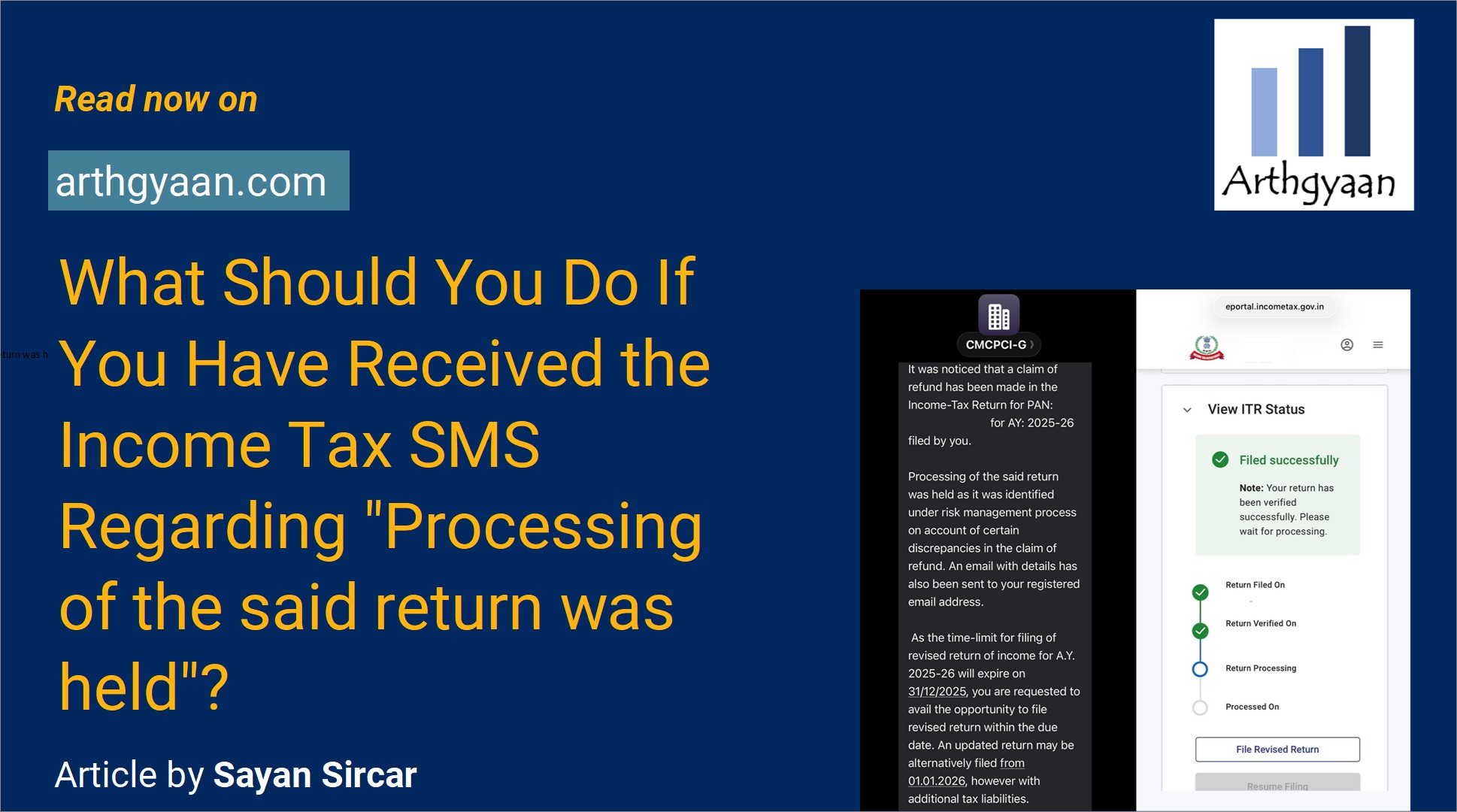Frequently asked questions on saving tax via Hindu Undivided Family (HUF): the complete guide
This article compiles an exhaustive list of FAQs on the concept of tax saving by creating an HUF.
This article compiles an exhaustive list of FAQs on the concept of tax saving by creating an HUF.

Please use the Find feature of your browser to look for specific items of interest.
A Hindu Undivided Family (HUF) is considered a ‘person’ under section 2(31) of the Income-tax Act, 1961. It stands as a separate entity for the purpose of assessment under the Act. An HUF comprises all persons lineally descended from a common ancestor, including their wives and unmarried daughters. It’s noteworthy that an HUF is not formed through a contract; it is automatically established within a Hindu family.
A daughter is a second degree co-parcener in the HUF and is also a Class I legal heir of her father. Therefore, she cannot be denied her share of her father’s self-acquired ancestral property whether or not that property is a part of the HUF.
A daughter-in-law becomes a member of the HUF whose member her husband already is, if any. But she does not become a co-parcener and therefore does not get rights upon the property and other assets held by the HUF.
The residency status of the HUF, NRI or Resident Indian, depends on where the HUF is managed from (India or abroad) and not where the karta stays.
An adopted child can become a member but not a co-parcener of the HUF.
Since an HUF is automatically created at the time of marriage, a husband and wife can be in a HUF without needing to have children.
Due to clubbing provisions under Section 64, there is no benefit of saving capital gains tax. The original owner of the assets will have to pay tax when the transferred assets are sold.
As a second degree co-parcener of her father’s HUF, the daughter can become the karta upon the death of her father. Her mother cannot be karta but her brother can.
Daughters can remain the karta of her father’s HUF after her own marriage. However, she cannot be the karta of her husband’s HUF, either belonging to the husband (at the time of marriage with her husband) or of her in-law’s.
Tax is paid by the entities who put up capital to acquire the property. Therefore it is considered tax evasion to transfer the rental income to the HUF to save tax.
The HUF can inherit ancestral property from any of the member’s ancestors. For example, if Mr. X and his spouse and kids constitute a HUF, then property of Mr. X’s father Mr. XF, or Mr. X’s grandfather Mr XGF (or even the great-grandfather) can pass on to the HUF upon the death of Mr. F. HUF can also receive property via will tax-free.
An HUF is eligible to save tax under Section 80C via investments like ELSS, PPF and 5-year tax-saver FD.
An HUF is not allowed to invest in NPS and therefore there is no question of saving tax via investment in NPS.
A HUF can invest in PPF and get full 80C tax benefits. Since PPF is exempt from all tax (EEE mode), then there is never any tax on PPF.
HUF members and co-parceners, if they transfer self-acquired property without sale consideration, like a gift, will not get any tax benefit from that transfer. This property will be taxed in the name of that individual who acquired it and not in the name of the HUF.
Any gift, above the value of ₹50,000/year, received from non-members is taxable. There is no benefit in such a transfer from the perspective of saving tax.
An HUF can be a co-applicant in a home loan if and only if
Being a co-applicant, the HUF can get 80C and Section 24 tax benefits as per choice of the tax regime and whether the property is rented out or not.
HUF can give salary to the Karta for running the HUF within reasonable limits. This amount will get added to the existing income, if any, of the Karta so that there is no special benefit. Coparceners cannot receive salary.
Under Section 64(2) of the income tax act, income from gifted assets like dividends from stocks will be clubbed with the income of the person making the gift. There is no wealth tax to be paid by the HUF at the time of gifting if the gift comes from HUF members or from relatives of HUF members.
Under Section 64(2) of the income tax act, income from gifted assets like interest from FD will be clubbed with the income of the person making the gift. There is no wealth tax to be paid by the HUF at the time of gifting if the gift comes from HUF members or from relatives of HUF members.
Under Section 64(2) of the income tax act, income from gifted assets like rent from property will be clubbed with the income of the person making the gift. There is no wealth tax to be paid by the HUF at the time of gifting if the gift comes from HUF members or from relatives of HUF members.
The Supreme Court, in October 2023, has said that the Karta of the HUF can dispose off the assets of a HUF, like property, without consent from any minor member of the HUF.
Both wives and daughters-in-law who enter a HUF due to marriage are members and not co-parceners. Therefore they cannot become a karta when the karta passes away. The karta has to be any co-parcener. A wife cannot be a karta of the HUF implicitly created at the time of her own marriage even if her husband dies. That role will pass on to her children (including daughters) or grandchildren or great-grandchildren in that order.
Yes that is allowed. You can be karta in one HUF (say with spouse by marriage) and be a corparcener in another (say with parents by birth).
Once a joint family income is assessed as HUF income, it continues until coparceners claim partition before the relevant assessment year. An inquiry is conducted by the Assessing Officer after receiving the claim, determining the partition’s existence and date. Income until the partition date is assessed as HUF income; post-partition, it’s taxed as individual income. If a recipient forms another HUF, the income from partitioned property is charged to the new HUF.
An HUF is automatically created at the time of marriage. So a husband and wife can be in a HUF without needing to have children. To make the arrangement formal, an HUF deed can be created either on the day of marriage or at any future date.
An HUF is recognized as a distinct assessable entity under the Act with it’s own PAN card.. For its income to be assessed, two conditions must be met: Firstly, there needs to be coparcenership within the family. Once an HUF’s income is initially assessed, it continues to be evaluated as such until partition is claimed by coparceners. Secondly, there should be joint family property, including ancestral property, property acquired using ancestral property, and property transferred by its members.
If the fees or remuneration is earned due to the investment of HUF funds, it may be treated as income of the HUF. However, if it’s earned for personal services rendered by the member, it’s considered the member’s personal income.
To calculate the income of an HUF, one needs to ascertain its income under various heads, excluding incomes exempted under specific sections of the Income-tax Act (sections 10 to 13A). It’s important to consider these aspects while computing the income of the HUF.
An HUF must have two or more co-parceners to be considered eligible for separate taxation. However, the smallest HUF, between a husband and wife, has only one co-parcener i.e the husband. An HUF with only one co-parcener does not have any tax benefit since everything is taxed in the name of the single co-parcener.
The PAN card for an HUF is created by filling Form 49A. Here are some samples.
The whole point of creating an HUF to save tax is to create another taxable entity in the family that has its own PAN card. Therefore, the HUF must file its tax return every year just like you and me.
HUF is separate from its members from the concept of taxability. Therefore deductions like 80C (PPF, ELSS mutual funds etc.) are applicable to HUF to save tax.
Since a HUF can inherit ancestral property, the rental income from that property is now taxed in the hands of the HUF and not clubbed with the members. This leads to saving of tax if the income of the HUF is lower than that of the members.
Gifts from members and co-parceners are tax-free for the HUF. However, gifts from non-members is taxable above ₹50,000/year.
Yes, an HUF is entitled to deductions available under Chapter VI-A, as applicable, when computing its taxable income.
Yes, remuneration paid by the HUF to the karta or any member is deductible if it meets certain criteria, like genuineness, reasonability, and is paid under a valid agreement.
Under Section 56(2)(x) of the Income tax act, members of the HUF are its relatives. So, there is no tax if the karta or the members (coparceners) gift any assets, like property, shares or mutual funds to the HUF with or without any adequate consideration. However, under Section 64(2) of the income tax act, income from such assets like dividends or interest will be clubbed with the income of the person making the gift.
The effect of partial partition (Section 171(9)) is as follows:
All members of the HUF are not co-parceners by default. Only the karta and co-parceners have rights to HUF-held assets like property. The first degree is the first time holder of ancestral property if any. The next degrees are their sons and daughters, grandchildren and great-grandchildren.
Total Partition: The entire joint family property is divided, terminating the family as an HUF.
Partial Partition: It can be regarding persons constituting the family or properties held. Coparceners may separate partially while others remain joint. Property can be partially divided while retaining joint family status.
The income of an HUF is computed considering various heads of income, excluding exemptions under sections 10 to 13A of the Income Tax Act. Investment of HUF funds in companies or firms and remuneration received by a member, among other factors, influence the computation.
When the karta dies, the eldest male member or female member, who is a biological descendant of the karta (child, grandchild or great-grandchild) becomes the new karta. Daughter of the karta can be the new karta. Her mother, i.e. the karta’s wife, or a daughter-in-law in the family, cannot be the new karta.
Several incomes are not taxed as the income of an HUF, including self-acquired property converted into joint family property, income from impartible estates, personal incomes of members, Stridhan (a woman’s absolute property), and income from individual property of a daughter.
Ancestral property is defined as the property inherited from any of the three immediate male ancestors: father, grandfather, or great-grandfather. Any property inherited from a relation other than these immediate ancestors isn’t considered ancestral property. The income from such ancestral property held by certain family setups like a family of widow mother and sons, a family of husband and wife with no child, among others, is taxable as the income of the HUF.
Partition signifies property division. It can occur physically or, when not feasible, as the property allows. While coparceners can claim partition, other entitled persons include a son in the womb during partition, the mother, and others as mentioned in the Act.
A partition, which can be partial or total, is the abolishing of the HUF status and resultant division of the HUF assets within the co-parceners. Members who are not co-parceners, like daughters-in-law, wives and adopted children cannot ask for partition. All co-parceners have to agree for the partition to happen.
An HUF is taxed at the same slab rates applicable to an individual. Additionally, an HUF might be liable to pay Alternate Minimum Tax under certain conditions if the tax payable is less than 18.5 percent of the Adjusted Total Income, including cess and surcharge.
According to Hindu Law, an HUF constitutes a family comprising all descendants from a common male ancestor along with their wives and unmarried daughters. This concept extends to Jain and Sikh families under the Act, despite not being governed by Hindu Law.
All four degrees of co-parceners i.e. karta and their children, grandchildren and great-grandchildren as equal owners of HUF property. Members are not owners. As more and more biological members increase, due to births, the HUF assets are subdivided. It must be kept in mind that partition requires consent from all co-parceners.

Published: 23 December 2025
6 MIN READ

Published: 18 December 2025
8 MIN READ
1. Email me with any questions.
2. Use our goal-based investing template to prepare a financial plan for yourself.Don't forget to share this article on WhatsApp or Twitter or post this to Facebook.
Discuss this post with us via Facebook or get regular bite-sized updates on Twitter.
More posts...Disclaimer: Content on this site is for educational purpose only and is not financial advice. Nothing on this site should be construed as an offer or recommendation to buy/sell any financial product or service. Please consult a registered investment advisor before making any investments.
This post titled Frequently asked questions on saving tax via Hindu Undivided Family (HUF): the complete guide first appeared on 30 Mar 2024 at https://arthgyaan.com
Copyright © 2021-2025 Arthgyaan.com. All rights reserved.